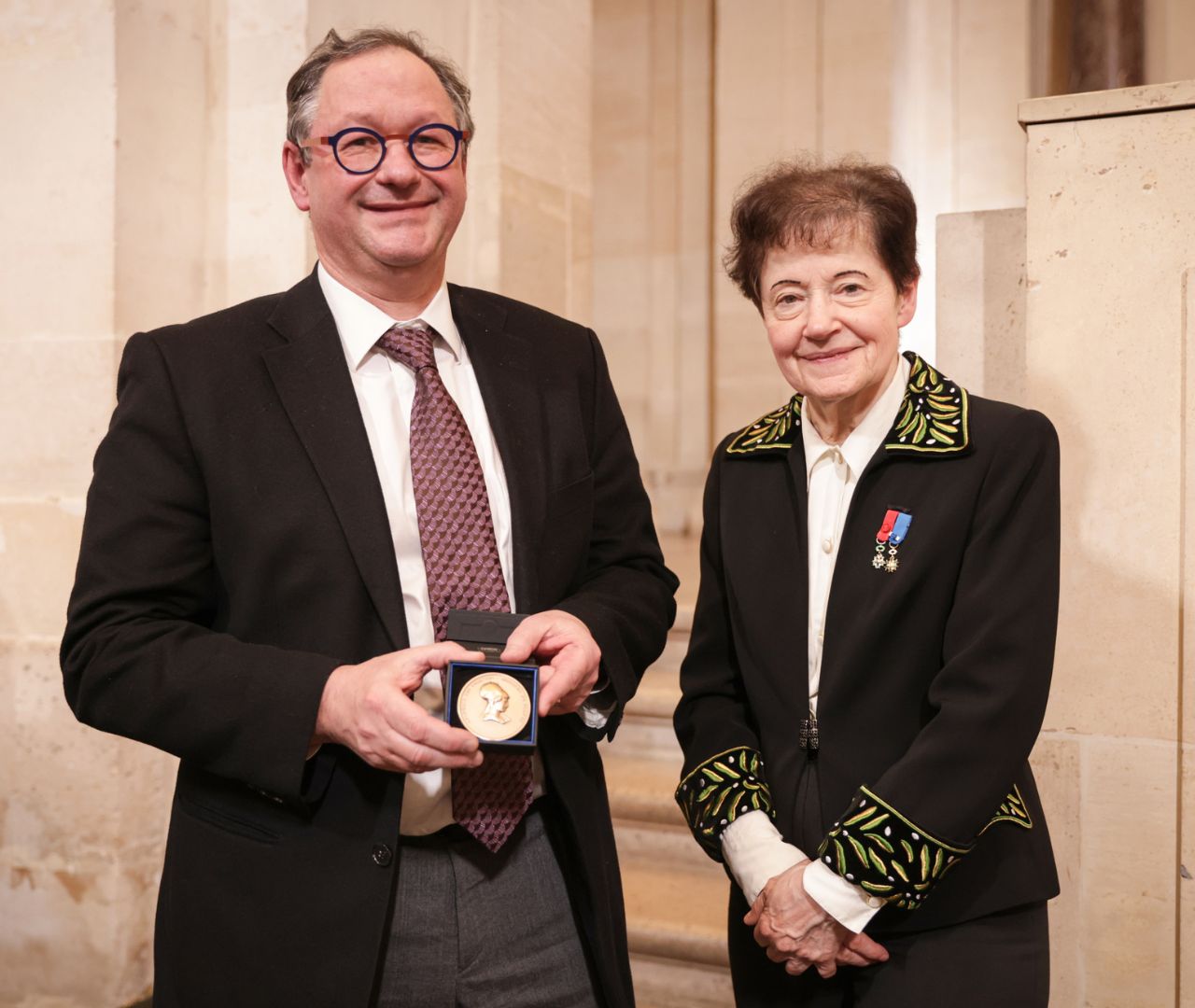Jean-François Roch: a double tribute to his work on quantum sensors in extreme conditions

Recognition for risk-taking
For Jean-François Roch, these prizes symbolise above all the validation of scientific risk-taking. ‘What I find most satisfying is that this prize recognises research in which we explored an avenue that was new, but which obviously drew on the expertise accumulated in the team over many years. In 2016-2017, we focused our work on measuring the magnetic and superconducting properties of materials under high pressure. This avenue, which we developed in close collaboration with the teams of Paul Loubeyre at CEA-DAM and Thierry Debuisschert at the Thales research centre, led to significant results that we published in 2019.’
The novelty consisted in exploiting the properties of diamond defects to turn them into quantum sensors capable of operating in an extreme environment where the pressure exceeds one million atmospheres. These studies are being carried out in diamond anvil cells, using technical resources that are now available at ENS Paris-Saclay, thanks in particular to the e-Diamant equipex, of which Jean-François Roch is the scientific coordinator.
A rapidly expanding field
When asked about the development of his field, Jean-François Roch emphasises the extent to which quantum technologies have gained in visibility and interest. ‘I never imagined that interest in this field would grow to such an extent. Seeing quantum devices finding unexpected applications is extremely rewarding.’
However, he remains aware of the boundaries between fundamental research and the industrialisation of results: ‘Technology transfer is another job that requires specific skills. I'm more comfortable trying to train, pass on and inspire. He is delighted to see his former doctoral students pursuing their careers in other academic laboratories or working in R&D in companies.
An exceptional career forged by ENS Paris-Saclay
Looking back over his career, Jean-François Roch is quick to point out the impact of his years of training at ENS Paris-Saclay (formerly ENS Cachan): ‘My career was profoundly shaped by my initial training at the École. The caring environment in what was then the physics department run by Gérard Fortunato and Mireille Tadjeddine, and the exceptional supervision we had there, particularly for experimental training, helped me to build myself up and gradually gain self-confidence. The contact with key figures such as Alain Aspect and Philippe Grangier, my thesis supervisor at the Institut d'Optique, was crucial to my scientific development.
He also attributes a large part of his success to the presidents of ENS Paris-Saclay, who encouraged him to explore new directions: ‘They gave me the means to take risks by allowing me a great deal of freedom. Without that, nothing would have been possible. That's what I'm modestly trying to pass on to my students today. ENS Paris-Saclay also allowed him to have periods of breathing space, through periods of research leave that were essential for the renewal of scientific activity. ‘In particular, it was during my six-month sabbatical at Churchill College, University of Cambridge, as an Overseas Fellow, that we came up with the foundations for the research programme we have been working on ever since’.
Advice for future generations
Finally, when asked for advice for students, he insists on self-confidence and the importance of scientific intuition and creativity: ‘You have to dare to take the plunge, even if it may seem intimidating in the face of international competition and all that has already been achieved! You have to remain humble, build up gradually and, above all, learn to work as part of a team. Research is a collective effort in which all team members have a key role to play.
